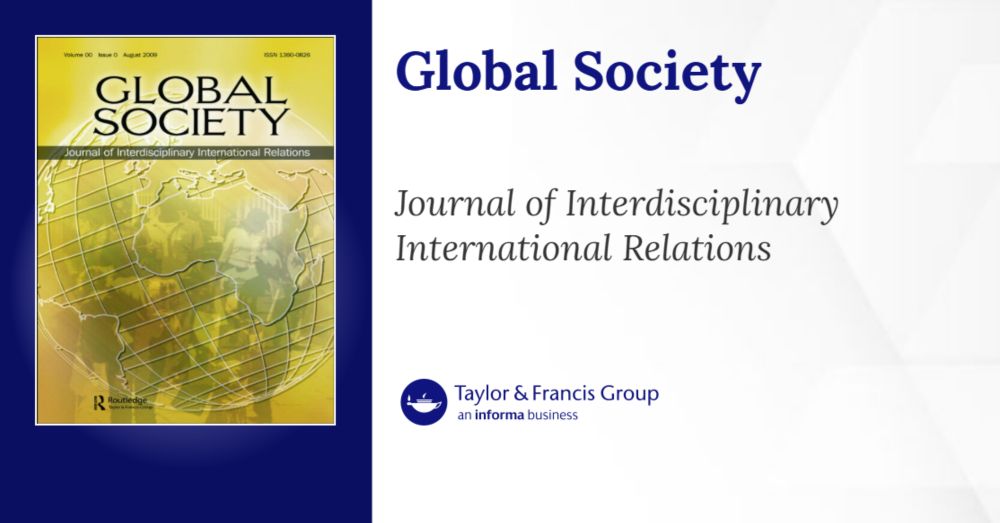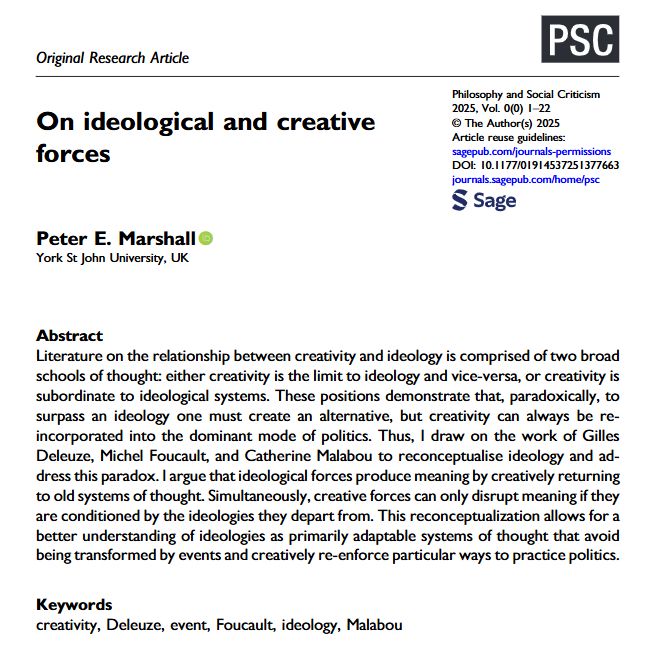Dr Peter E Marshall
@poltheorypete.bsky.social
120 followers
260 following
16 posts
PhD in Political & Social Thought from the University of Kent. BA & MA from Royal Holloway. Casual Academic at York St John.
Ideology, creativity, poststructuralism, and related political theory.
he/him
https://poltheorypete.wordpress.com/
Posts
Media
Videos
Starter Packs
Reposted by Dr Peter E Marshall
Reposted by Dr Peter E Marshall
Reposted by Dr Peter E Marshall
Reposted by Dr Peter E Marshall
Reposted by Dr Peter E Marshall
Reposted by Dr Peter E Marshall
Reposted by Dr Peter E Marshall
Reposted by Dr Peter E Marshall
Reposted by Dr Peter E Marshall
Reposted by Dr Peter E Marshall
Reposted by Dr Peter E Marshall
Reposted by Dr Peter E Marshall
Reposted by Dr Peter E Marshall
Reposted by Dr Peter E Marshall









